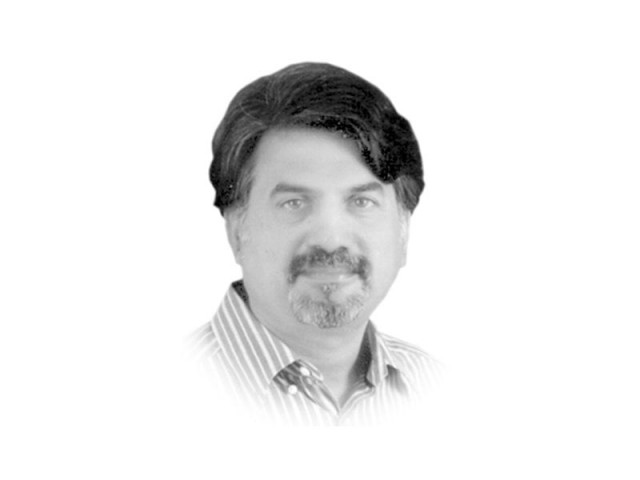Foreign policy challenges
All the countries need to look at one another’s problems, through putting themselves in the other’s shoes.

The writer is a defence analyst who retired as a lieutenant-colonel in the Pakistan Army
Our neighbourhood is one in which unnatural partners like India and Afghanistan seek economic and military partnerships, while we prepare to prevent the myth of “military encirclement”. The choices that Afghanistan is making today are not the result of it not being our natural partner but the outcome of our own policy preferences. Afghanistan knows that all the engines that drive our society today — economic, political and social — are sputtering. It is natural for it to reach out over our shoulders to India. When, as a state, we do not even have control over our gas pumps and when we cannot even ensure that our universities remain open, why on earth would Afghanistan want its students to enrol in our universities or invest in oil and gas pipelines that, to remain functional, may rely on the goodwill of terrorists and arsonists? Afghanistan has the right to make its choices as much as we have the right to make our own. The neighbour on our western border and the peace we favour with it will only materialise if both the countries are ready to blow up the myths and lay bare tragic truths. Only from such action will emerge an environment that may be congenial for pursuing peace in the western neighbourhood.
Our eastern neighbourhood that warrants our major military deployment needs our greatest attention. Persisting with the status quo and our hardened policies will not work to break the impasse with India. In the past, our inconsistencies in following up on our policies with that country damaged our purity of intent and credibility. Nobody knows that better than PM Sharif, whose government was removed defending such an inconsistency. The next big test for him is when his government presents the budget today. Judging by the security situation in and around the country, the government will have to devote money to the military. But what it can plan in the future is to minimise and provide little incentive to allocate huge amounts to the defence budget. We can create that incentive only if we are at peace with India. A peaceful eastern front will entail reduction in military expenditures and that is what our renewed foreign policy goal must seek.
Pakistan needs to band together with other countries, including regional and global powers. We cannot continue to stick only to our national and security interests. We may do that only if these interests don’t translate into insecurities and vulnerabilities for other countries because that entails that we have been following a course of divergence. So, how can these divergences be minimised and removed?
All the countries need to look at one another’s problems, not from the other side of the border or the other side of the globe, but through putting themselves in the other’s shoes. It’s not by exploiting one another’s weaknesses but by cashing on the many opportunities to change the course of interstate relationships that we can create an environment of interdependence and a convergence of interests.
With few interests in common, building up convergence seems to be a myth, or at best, a political slogan. Yet, if we are free to make choices as governments that lead our independent countries, then there is room for hope and optimism.
In Pakistan’s case, if it is ideas and not individuals and institutions that guide our foreign policies, then we may see a meaningful change in how we build our external relationships.
If working in our national interests has boxed us in the corner, then it is time we found other ways of fighting to preserve them. It is actually the search of such methods that PM Sharif’s government needs to explore. If our foreign policy is not guided by an out-of-the-box approach, then it will be hard for Pakistan to get out of the corner where it has boxed itself in.
Published in The Express Tribune, June 12th, 2013.
Like Opinion & Editorial on Facebook, follow @ETOpEd on Twitter to receive all updates on all our daily pieces.














COMMENTS
Comments are moderated and generally will be posted if they are on-topic and not abusive.
For more information, please see our Comments FAQ